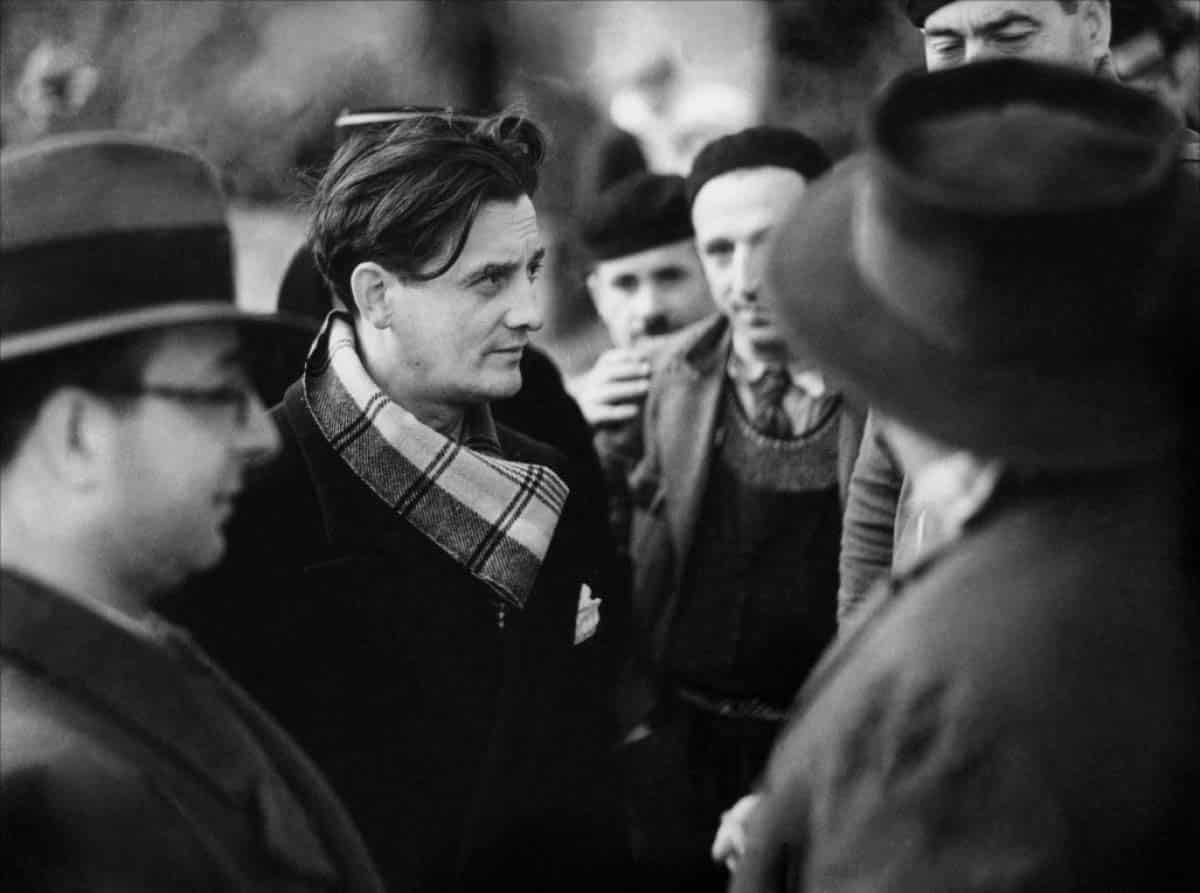Contents
Marcel Pagnol: the man
Born in Aubagne on February 28, 1895 to Joseph Pagnol and Augustine Lansot, Marcel Pagnol received a classical and republican education tinged with anticlericalism. Son of a schoolteacher, he quickly developed a passion for classical literature and, at the age of 19, founded the literary review “FORTUNIO”, which published, among others, theatrical and lyrical reviews as well as a serial novel ” Pirouettes “.
In 1916, he entered the teaching profession. He was appointed as a tutor in Digne, Pamier, Tarascon and then in Paris in 1922. In his spare time, he wrote plays in verse and ancient dramas.
Learn more about the manAuthor of successful plays
Settled in the capital, the young author found his friend Paul Nivoix with whom he wrote “The Merchants of Glory” in 1924. The critics were enthusiastic but the success was not there. At that time, his friends were Marcel Achard, Henri Jeanson, Joseph Kessel. They met every evening to discuss their writings.
In 1926, his new play “Jazz” was created at the Monte-Carlo theater. The public acclaimed him; his career was launched. Three of the greatest successes of French theater followed: “Topaz” in 1928, “Marius” in 1929, and “Fanny” in 1931. That year, his meeting with Bob Kane, director of Paramount France, gave him the opportunity to bring “Marius” to the screen. The success was phenomenal and talking movies were booming. Marcel Pagnol then decided to create his own production company and to abandon theater.
An extraordinary cinematographic adventure



A page is turned, he founds his own studios in Marseille and a magazine ” les cahiers du film ” in order to spread his conception of the cinematographic art: the dialogue must prevail over the image. In this way, he established the supremacy of the author over the director. This may seem trivial nowadays, but in the 1930s, the theories of the seventh art were directly derived from silent cinema and the director was all-powerful.
He devoted himself to this new means of expression until 1954, producing and directing more than twenty films: “Fanny“, “Topaze“, “Angèle“, “César“, “The Baker’s Wife“, “The well-digger’s daughter“, “Regain“, “Manon of the Springs“, “Naïs” etc…
Marcel Pagnol the writer
In 1946, he was the first filmmaker elected to theFrench Academy. He then began to associate more and more with writers and began to write prose. He began with his cinematographic memories “Cinematurgy of Paris” and then with a virulent attack against critics “Criticism of criticism” and an essay on the mechanisms of laughter “Notes on laughter”.
In 1955, he put an end to his film career for personal reasons. After a brief return to the theater with “Judas” and “Fabien” he began writing his “Childhood Memories”: “The Glory of My Father” and “My Mother’s Castle“. Then came “L’eau des collines” composed of “Manon of the Springs” and “Jean de Florette“, followed by “Confidences” and “The Time of Secrets“. He translated Virgil’s “Les bucoliques” and Shakespeare’s “A Midsummer Night’s Dream” and wrote a historical essay on the enigma of the Iron Mask. Finally, he worked on the last volume of his childhood memories, “The Time of Love“, which he was unable to finish.
Considering his life, it seems that the means of expression did not matter much to Marcel Pagnol. He was only interested in creative freedom. Thus, he left the contingencies of the theater for the freedom of staging provided by the camera. Then, at a time when making a film had become too tedious, he preferred his sergeant major pen, his inkwell and a blank page. For him, theater and cinema were only minor arts, that is to say tools at the service of dramatic art, in the same way that the pen is only the tool of the writer.
Marcel Pagnol and “the others
An influence beyond the borders






This refusal of the enslavement of creation by technique pushed him from 1933 to shoot on location and to favor the naturalness of situations and acting. This is why Roberto Rossellini and Vittorio De Sica said he was the father of neo-realism. His work is marked by an uncommon understanding of the human being. He never condemns or judges his characters. Everyone has his chance, his story, the worst actions are always forgiven, man is never master of his destiny.
hat is Pagnol’s lesson: when you came out of one of his films, you were happy. Sometimes you even thought you were better.
Jean-Charles Tacchella (director)
One of the other constants of Marcel Pagnol’s work is its anchorage in the South of France. However, avoiding the pitfalls of regionalism, he made this region the center of the world by giving his characters and themes a universal dimension, such as Marius, a young man in search of himself, called by elsewhere and held back by love, and Fanny, sacrificing her life to make the man she loves happy.
Marcel Pagnol’s work has been adapted worldwide, in Egypt, China and England with “Topaze”, in Japan with two adaptations of “Marius”, in the United States with “Marius” and “Fanny”. His books are now translated into more than ten languages and foreign schools teach French on the texts of “Souvenirs d’enfance” and “Trilogie”.
Marcel Pagnol and othersMarcel Pagnol: his multiple talents
Playwright, novelist, filmmaker, essayist, pamphleteer, historian, but also director of studios, distribution agencies, producer, press director, he was above all a curious man, enlightened on all things, in the manner of a scientist of the Enlightenment.
Multiple talentsMarcel Pagnol s’éteint à Paris le 18 avril 1974.

